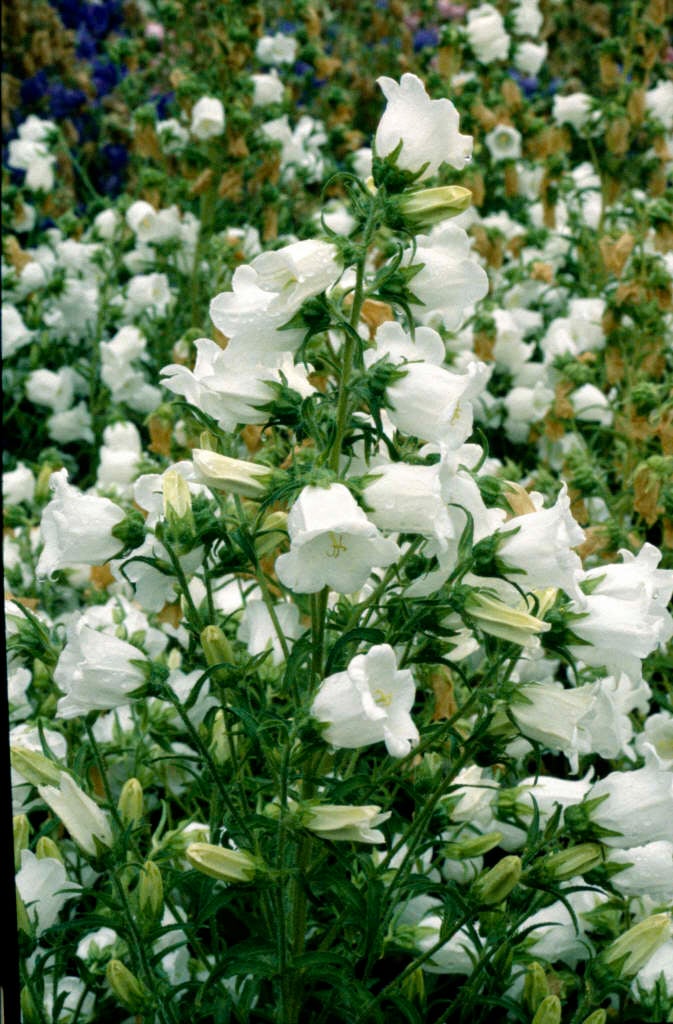Campanula medium
Canterbury bells
A biennial of upright growth, with a basal rosette of lance-shaped leaves to 15cm long and a leafy stem bearing broadly bell-shaped, blue, pink or white, single or double flowers in summer
Other common names
Canterbury bellCoventry bells
see moreCoventry rapes
cup and saucer
fair-in-sight
gingerbread bells
mariettes
Mercury's violets
St Thomas's bell
lady's nightcap
Synonyms
Campanula 'Canterbury Bells'Size
Ultimate height
0.5–1 metresTime to ultimate height
2–5 yearsUltimate spread
0.1–0.5 metresGrowing conditions
Moisture
Moist but well–drained, Well–drainedpH
Acid, Alkaline, NeutralColour & scent
| Stem | Flower | Foliage | Fruit | |
| Spring | Green | |||
|---|---|---|---|---|
| Summer | Blue Pink White | Green | ||
| Autumn | ||||
| Winter |
Position
- Full sun
- Partial shade
Aspect
West–facing or East–facing or South–facing
Exposure
Exposed or Sheltered Hardiness
H4Botanical details
- Family
- Campanulaceae
- Native to GB / Ireland
- No
- Foliage
- Deciduous
- Habit
- Bushy
- Genus
Campanula may be annuals, herbaceous or evergreen perennials, with bell or star-shaped, often blue, flowers in late spring or summer
- Name status
Correct
- Plant range
- S Europe
How to grow
Cultivation
It prefers fertile, moist but well-drained soil. It will tolerate wide range of soil types if well-drained. Grow in sun or partial shade. Suitable for container cultivation
Propagation
Propagate by seed. Surface sow seeds from late spring to early summer. In milder areas sow directly in the autumn
Suggested planting locations and garden types
- Patio and container plants
- Cottage and informal garden
- Wildlife gardens
- Flower borders and beds
- Underplanting of roses and shrubs
Pruning
Do not cut back after flowering if self-seeding is desired. However, removing of the spent flower spikes may encourage second flush of flowers
Pests
Diseases
Powdery mildews and rust diseases may be a problem
Get involved
The RHS is the UK’s gardening charity, helping people and plants to grow - nurturing a healthier, happier world, one person and one plant at a time.
